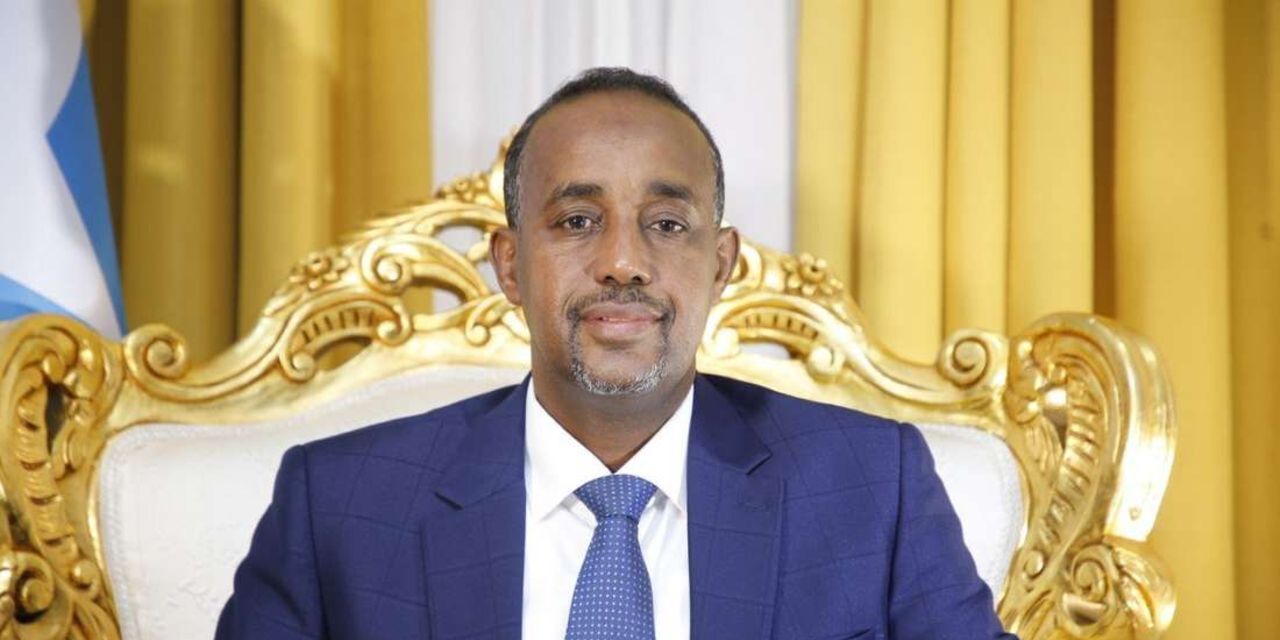Somalia govt rescinds disbandment of trade lobby

What you need to know:
- PM Roble pledged to let officials continue working as long as the issues identified, including a possible Al-Shabaab infiltration, are addressed.
- A report by Mogadishu-based Hiraal Institute claimed Al-Shabaab was profiting from illegal taxation of business organisations.
Somalia’s main organisation for investors and traders this week got a reprieve after the government rescinded its decision to disband it over complaints from traders.
Prime Minister Mohamed Hussein Roble instead pledged to let officials continue working as long as the issues identified, including a possible Al-Shabaab infiltration, are addressed.
Mr Roble said on Wednesday that the Somalia Chamber of Commerce had not been disbanded as announced by the Trade ministry last December.
“The chamber has not been disbanded. We will recall the letter from the Ministry of Trade,” Roble told journalists in Mogadishu.
What happened
Trade and Industry Minister Khalif Omar announced the organisation had been disbanded and a new caretaker team formed.
Mr Omar said at the time that complaints from traders and “complications of commerce” had forced authorities to intervene.
The new caretaker team was to be led by Abdullahi Osman from the Hormuud Telecom’s Salaam Foundation.
Abdi Dorre, managing director of the Somalia Chamber of Commerce, said they welcomed the decision of the PM as it gave them independence to manage the affairs of investors and traders.
“We are working closely with the government but it has no mandate to dissolve the chamber,” he said.
“To see the Prime Minister finally intervene and say the government did not allow this is, to us, useful information.”
The organisation’s members were the source of most of the $250 million revenue collected by the Somalia government last year, in taxes and other legal fees.
Al-Shabaab factor
The minister’s move came a few days after a report by Mogadishu-based Hiraal Institute claimed Al-Shabaab was profiting from illegal taxation of business organisations, which are also members of the Chamber of Commerce.
With more than 150 members, including business firms in logistics, medical care, agriculture, telecom and information technology as well as security services and import-export businesses, the Somali Chamber of Commerce and Industry serves as a collective and influential representative for the private sector in Somalia.
However, while its members are duty-bound to pay taxes to the government, Hiraal said the infiltration by the terror group meant some of their members had been forced to quietly pay extortion fees to it.
Dorre said the chamber will cooperate with authorities to ensure legal working but noted that the organisation does not condone support for the activities of illegal groups.
Past dissolutions
The chamber has in the past been roughed up by authorities.
In January 2020, the Benadir Chamber of Commerce, the affiliate in charge of Mogadishu metropolis, was dissolved after officials in government claimed its ranks had been infiltrated by Al-Shabaab.
They were allowed back to work after satisfying operational audits.
In 2017, then Trade Minister Khadra Ahmed Duale dissolved the chamber and ordered new elections. Duale was sacked in June 2018.
The chamber says it will continue to run operations including acting as a connecting point for local and international investors.
The chamber’s members have, however, in the past also been victims of Al-Shabaab attacks.
In September last year, three people were killed in a suicide attack outside a mosque in Kismayu. They included Jubbaland Chamber of Commerce chair Shafi'i Rabi Kahin.

